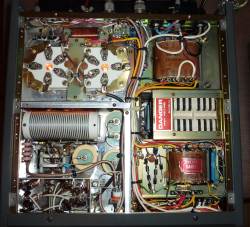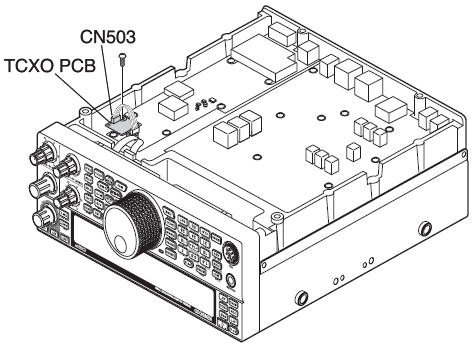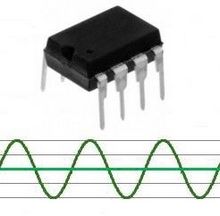New : on line shop !
- Details
- Hits: 11096
 Years after years, everyone is collecting things that "can be usefull"... But, at a certain time, a housework is necessary !
Years after years, everyone is collecting things that "can be usefull"... But, at a certain time, a housework is necessary !
I have to get rid of a lot of parts and equipments. I have created a small online shop on my Joomla site, using the Virtuemart component.
I didn't setup a online shipping and payment system, so if you need something, please feel free to contact me !
The link to the shop is in the menu under "eShop".
TL922 facelift
- Details
- Hits: 51073
 A friend of mine who bought a cheap Kenwood TL922 power amplifier asked me to repair it and to bring some modifications in order to improve the security. This is the fruit of my works...
A friend of mine who bought a cheap Kenwood TL922 power amplifier asked me to repair it and to bring some modifications in order to improve the security. This is the fruit of my works...
So, before any tests i have made the following modifications :
- Step-start
- Filament transformer protection
- HV protection agiainst internal valve flash
- Zener diode substitution
- PTT circuit modification ofr low voltage switching
- RF relay substitution
- RF stability improvement
- Symetrical tube feeding
TS590s intermittent receive
- Details
- Hits: 22859

I noticed that a slight shock on the case brought the rig back to live, but not always. Being new and under warranty, i sent the rig back for repair.
SO-3 TCXO substitution
- Details
- Hits: 46583
 One of the first things that bothered me with my brand new TS590s was a noticeable fequency drift at startup. I was quite surprised to learn that the master clock of the TS590s uses a normal Xtal oscillator at 15.600 MHz.
One of the first things that bothered me with my brand new TS590s was a noticeable fequency drift at startup. I was quite surprised to learn that the master clock of the TS590s uses a normal Xtal oscillator at 15.600 MHz.
As a solution, Kenwood is "offering" an optional TCXO, named SO-3. It was another shock when i saw the retail price for a new SO-3. It costs a heavy 130 € in France while a new TS590s can be found around 1500-1600 €...
Nowadays, in all serious rigs a TCXO is a MUST with the growth of digital modes. In mass production, it only costs a very few €uros. I'm convinced that the price of the TS590s wouldn't be higher (or even cheaper) if Kenwood would replace the original Xtal oscillator + the TCXO addon board + 2 jumpers + the 2 connectors + screws, etc... with a TCXO !
But that's certainly a way for Kenwood to make an easy money by selling their optional SO-3 TCXO !
Moreover, the customer has to solder the TCXO on the addon board he has to remove from the transceiver. RIDICULOUS !!
PIC tone decoder
- Details
- Hits: 38859
 Here is a description of an audio frequency tone decoder build around a PIC 12F683.
Here is a description of an audio frequency tone decoder build around a PIC 12F683.
For a cost not much higher than a basic NE567, you will have :
- A more efficient decoder
- Far better stabiliy
- A settable threshold with hystereis
- Possibility to tune from 100 to 2148 Hz or use a fixed frequency
- No exotic or particular component
Page 7 of 8